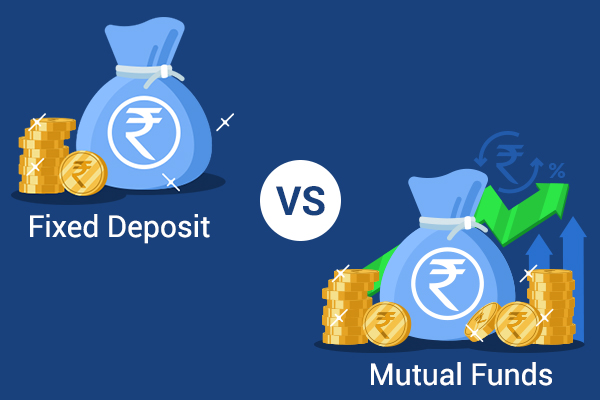In the world of personal finance, selecting the right investment vehicle is crucial for achieving your financial goals. Two popular options—Mutual Funds (MF) and Fixed Deposits (FD)—offer distinct advantages and cater to different needs. Understanding their key features can help you make an informed decision that aligns with your financial objectives.
Mutual Funds: Growth with Flexibility
What Are Mutual Funds?
Mutual Funds pool money from multiple investors to invest in a diversified portfolio of stocks, bonds, or other securities. They are managed by professional fund managers who make investment decisions on behalf of the investors.
Key Benefits:
- Potential for Higher Returns: Mutual Funds, especially equity or hybrid funds, offer the potential for higher returns compared to traditional investment options. The returns are linked to the performance of the underlying assets and can vary based on market conditions.
- Diversification: By investing in a range of securities, Mutual Funds spread risk across different assets, reducing the impact of poor performance in any single investment.
- Liquidity: Most Mutual Funds provide liquidity, allowing investors to redeem their units at the current market value. However, some funds may have exit loads or lock-in periods.
- Professional Management: Fund managers with expertise and experience oversee the investment strategy, aiming to optimize returns and manage risk.
Considerations:
- Risk: Market fluctuations can lead to volatility in returns, which means higher potential rewards come with higher risks.
-Fees: Management fees and other charges can impact overall returns. Fixed Deposits: Stability and Certainty
What Are Fixed Deposits?
Fixed Deposits are a type of savings account offered by banks and financial institutions where you deposit a lump sum for a fixed tenure at a predetermined interest rate. They are known for their safety and guaranteed returns.
Key Benefits:
- Guaranteed Returns: Fixed Deposits provide a fixed rate of interest, ensuring that your principal and interest are returned at maturity. This makes them a low-risk investment option.
- Predictability: With fixed returns, investors can plan their finances with certainty, making FDs a reliable choice for capital preservation.
- Tax Benefits: Certain types of FDs, such as tax-saving FDs, offer tax benefits under specific conditions.
- Security: Deposits are generally insured up to a certain limit by government agencies, adding an extra layer of security.
Considerations:
- Lower Returns: Compared to mutual funds, FDs typically offer lower returns, which may not keep pace with inflation.
- Liquidity: Early withdrawal may incur penalties and reduced interest rates, which could impact your returns if you need to access funds before maturity. Making the Right Choice
- Assess Your Risk Tolerance: If you are comfortable with market fluctuations and seek potentially higher returns, mutual funds might be a better fit. If you prefer a safe, guaranteed return, fixed deposits offer stability.
- Define Your Investment Horizon: For long-term goals, mutual funds might provide better growth potential. For short-term needs or emergency funds, fixed deposits can offer safety and liquidity.
- Understand the Tax Implications: Consider how the interest from FDs or the gains from mutual funds will affect your tax situation.
- Diversify: Often, a combination of both mutual funds and fixed deposits can be a strategic approach, balancing growth potential with security.
In conclusion, both Mutual Funds and Fixed Deposits have their unique strengths and serve different investment needs. By evaluating your financial goals, risk appetite, and investment horizon, you can make an informed decision that aligns with your overall financial strategy. For personalized advice, consulting with a financial advisor may also be beneficial.




